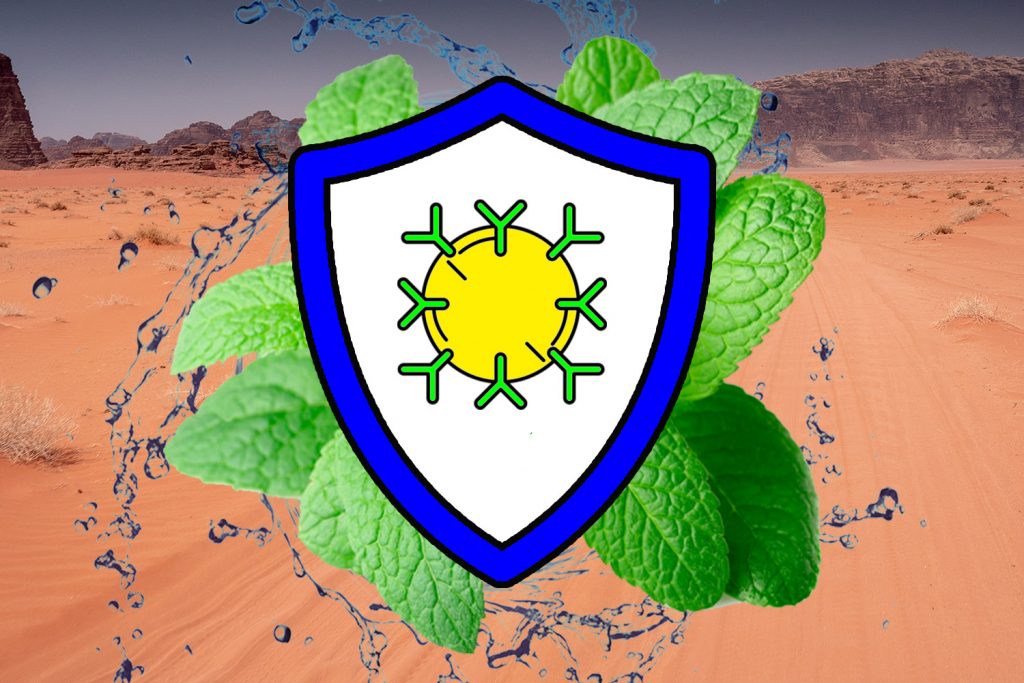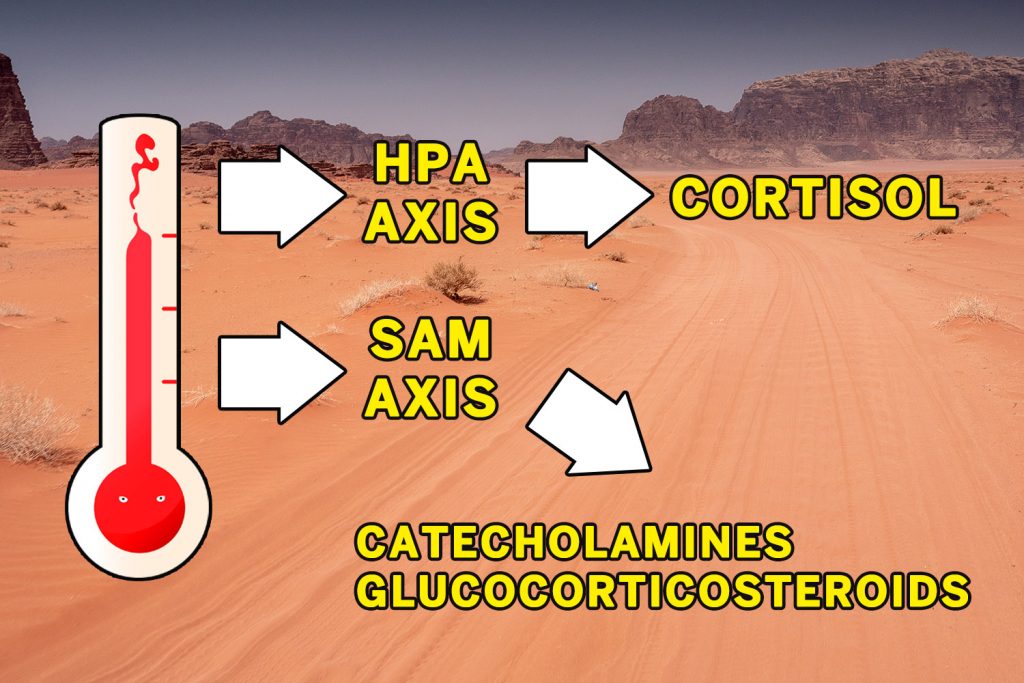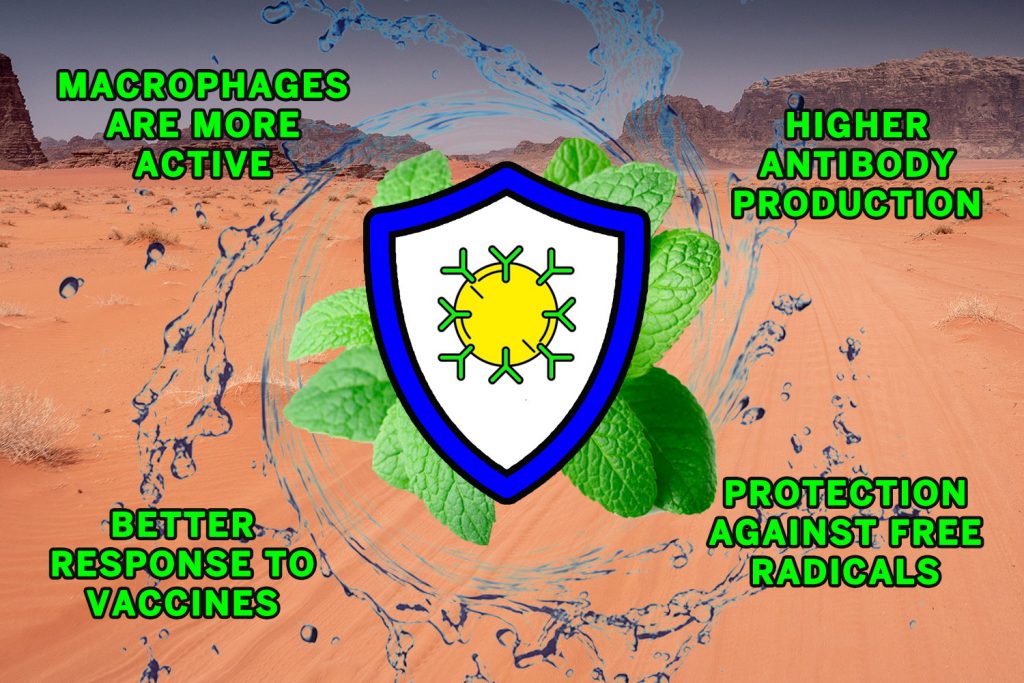09 Jul Heat stress and immunosuppression: essential oils come to the rescue!

High environmental temperature is among the most important causes of poor performance in our industry. Heat stress negatively affects the oxidative status of the animals, egg quality, reproductive performance, gut health and immune response.
Immunosuppression during heat stress leads to a raise mortality and to an increased susceptibility to different diseases.
MODULATION OF THE IMMUNE RESPONSE DURING HEAT STRESS
The modulation of the immune response by the central nervous system is mediated mainly through two pathways:
- The hypothalamic–pituitary–adrenal (HPA) axis: it is a system of interaction between the hypothalamus, the pituitary gland (both located in the brain) and the adrenal glands (located in the kidneys). Its main function is the response to stress. When the HPA axis is stimulated by a stressor, such as high environmental temperatures, it starts a metabolic reaction that leads to the production of cortisol. Cortisol helps the body to deal with stress, by raising blood pressure, increasing circulating levels of glucose and by inhibiting processes that are deemed to be of lesser importance during stress, such as the reproductive function.
- The sympathoadrenal (SAM) axis: it is a system of interaction between the sympathetic nervous system and the adrenal glands (located in the kidneys). Its function is to regulate the responses of the body to the stimuli coming from the environment. During heat stress, the SAM axis produces glucocorticosteroids, that inhibit the immune system, and catecholamines, that raise the heartbeat frequency, slow down the intestinal movements and prepare the body for physical activity to respond to the stressor.

Cortisol, glucocorticosteroids and catecholamines inhibit the immune system. In animals that have been exposed to heat stress, it has been found that these substances produce:
- Lower relative weights of the organs related to immunity (liver, thymus, spleen, bursa of Fabricius)
- Less lymphocytes B and T and, therefore, fewer antibodies circulating in the blood
- Macrophages are less capable to destroy invading microorganisms and other foreign substances.
- Fewer immune cells in the intestinal tract
DISEASES ASSOCIATED WITH THE IMMUNODEFICIENCY CAUSED BY HEAT STRESS
In poultry:
- Higher mortality and more severe secondary effects after vaccination
- Poor immune response to vaccines
- Digestive infections
- Infections by Escherichia coli (yolk sac infection, omphalitis, respiratory tract infection, swollen head syndrome, septicemia, polyserositis, enteritis, cellulitis and salpingitis.)
In swine:
- Digestive infections
- Increased mortality among sows, boars and finishers
- Poor immune response to vaccines
- Weak piglets, that are prone to disease
- Poor milk production
- Higher occurrence of mastitis
In ruminants:
- Higher incidence of mastitis and respiratory problems
- Lower birth weights
- Weak young ruminants, that are prone to disease
- Higher mortality of pregnant, lactating females and young ruminants
ESSENTIAL OILS COME TO THE RESCUE!
Essential oils that are used to relief heat stress, such as eucalyptus and peppermint, are also powerful immune boosters:
- Stimulate the phagocytic response of macrophages
- Boost the number and the activity of lymphocytes, increasing the production of antibodies
- Multiply the titre of serum antibodies after vaccination
- Increase the weight of organs related to immunity
Moreover, thanks to its antioxidant effect, these essential oils protect the structural integrity of immune cells from free radicals, thereby resulting in a better immune response.

Products of choice
PhytoShield© is an oral emulsion that contains essential oils, electrolytes and vitamins intended to promote growth, reduce oxidative stress, and keep the animals hydrated.
PlusBreathe© contains essential oils with natural antiseptic, antioxidant, expectorant and mucolytic activity. It has a refreshing taste.
It is indicated to improve the functioning of the respiratory system and to mitigate heat stress in birds, ruminants, pigs and rabbits of all ages. It can also be nebulized in the farm environment.

Certain health statements may not be applicable in your region.

